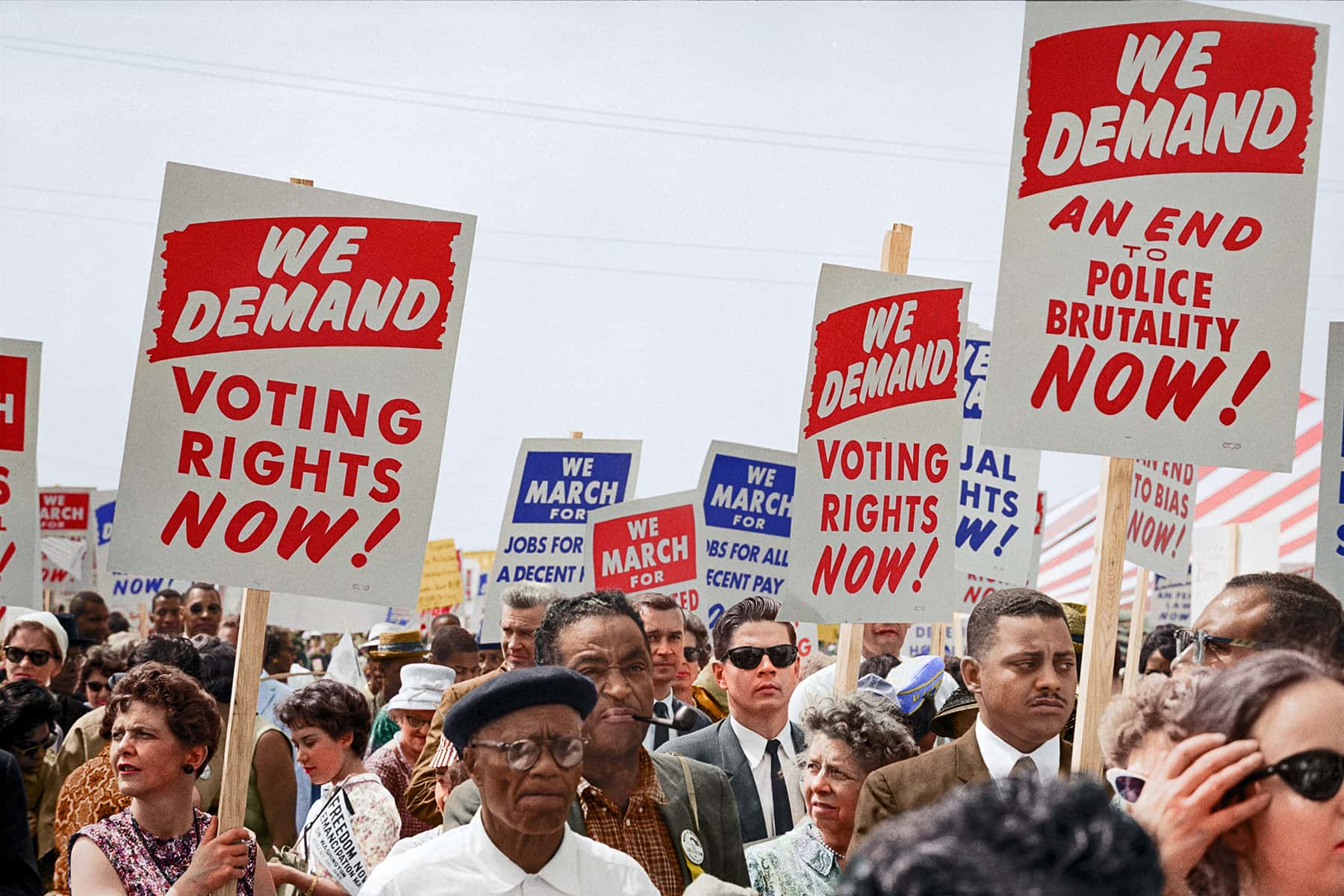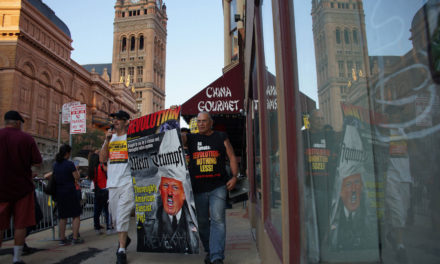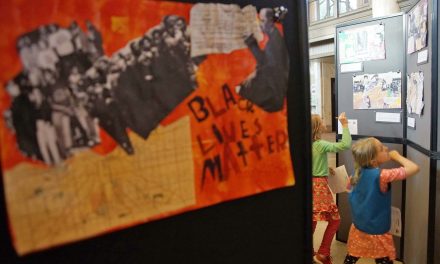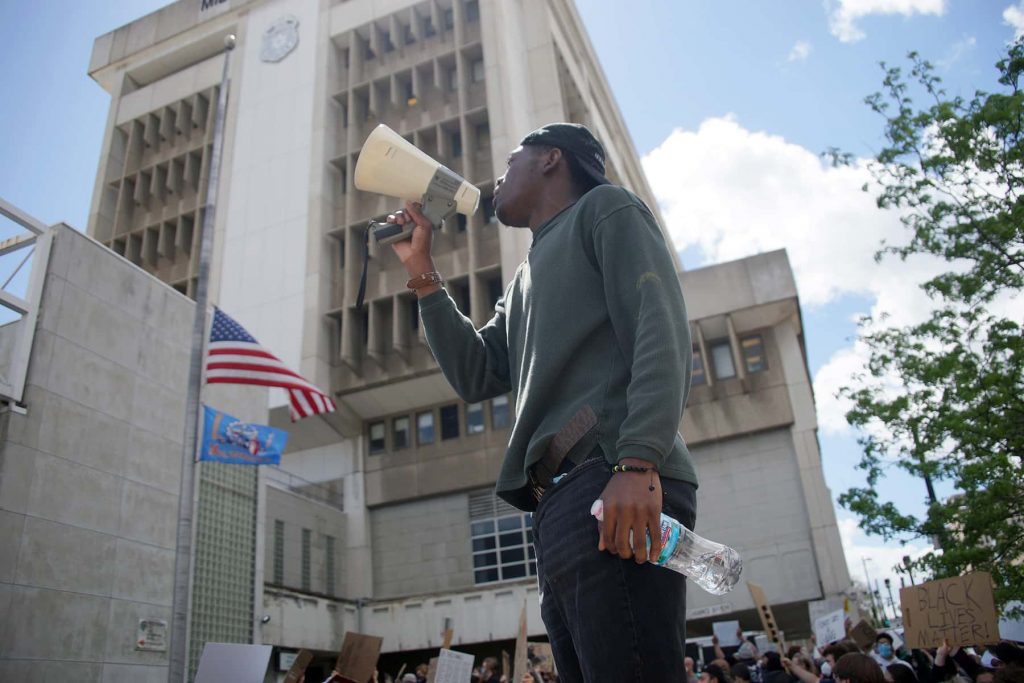
“We’re tired of all this beatin’, we’re tired of takin’ this. It’s been a hundred years and we’re still being beaten and shot at, crosses are still being burned, because we want to vote. But I’m goin’ to stay in Mississippi and if they shoot me down, I’ll be buried here. But I don’t want equal rights with the White man, if I did, I’d be a thief and a murderer. But the White man is the scardest person on earth. Out in the daylight he don’t do nothin’. But at night he’ll toss a bomb or pay someone to kill. The White man’s afraid he’ll be treated like he’s been treatin’ Negroes, but I couldn’t carry that much hate.” – Fannie Lou Hamer
In September 1765, the British Parliament passed the Stamp Act requiring colonists in America to pay tax on every page of printed paper, cards and even dice they used. The leaders of nine colonies protested against the tax saying they could not be taxed because they had no representatives in Parliament. The “no taxation without representation” argument became a clarion call about the slights colonists felt at that time. Patrick Henry expressed the views of the colonists in 1765 when he wrote the Virginia Resolves on the Stamp Act.
“Resolved, Therefore that the General Assembly of this Colony have the only and sole exclusive Right & Power to lay Taxes & Impositions upon the Inhabitants of this Colony and that every Attempt to vest such Power in any Person or Persons whatsoever other than the General Assembly aforesaid has a manifest Tendency to destroy British as well as American Freedom.”
For Americans, this is an idea that is taken for granted today. However, Black Americans have a strong argument that this statement could very easily apply to them as well as it did and even more so than those colonists did in 1765.
The disenfranchisement of Blacks after the 1870 Fifteenth Amendment guaranteed Black men the franchise proves the same point made by Patrick Henry. In state after state, Blacks have consistently had their voting rights stolen and are still fighting to this day to have them be protected.
We can’t take for granted that our votings rights are protected because nearly one hundred bills have been created in the past several years to reverse course when it comes to voting rights being universal. Many of these bills across the country are clearly designed to lessen the impact of Black voters. We know this because we’ve been dealing with this for hundreds of years. As was the case after the Civil War some Whites have been caught up in this disenfranchisement as well. They were and still are collateral damage in the voting rights wars.
When I hear people describe America as a democracy it makes me laugh out loud. The dictionary tells us that democracy is defined as “government by the people; a form of government in which the supreme power is vested in the people and exercised directly by them or by their elected agents under a free electoral system.”
If America is a democracy it does not fit this particular definition. It never has fit because “the people” has been exclusionary since the nation was founded in 1787. Women, unpropertied White males, Native Americans, enslaved Blacks and many free Blacks, were disenfranchised in the early years of the new nation founded by those who complained to Parliament back in London.
As a young boy I grew up in the Mississippi Delta, the future home of one of the most important battles for voting rights for Black people in the country.
The Freedom Summer of 1964 was a voter registration effort to regain stolen voting rights for Blacks in Mississippi. It led to beatings, loss of jobs, evictions and murders. The same things were occurring throughout the South. I had no idea as a child that these things happened just before I was born. They were not taught in school. Mississippi had a long history of disenfranchising Blacks voters by a variety of measures by the time I came into the world.
In 1870 Congress ratified the Fifteenth Amendment giving Black men the right to vote. Mississippi Whites were intent on making sure that law would not be enforced. The violence and coercion used during that time, to prevent Black men from voting, would be a precursor to the same efforts nearly one hundred years later.
A federal case, United States v. Mississippi in 1965, provided evidence of how successful the efforts had been to disenfranchise Blacks in the state. I recently looked at some documents from that case to see the evidence the Department of Justice had gathered. It was shocking but not surprising.
This data from the case goes to show how horribly disenfranchised Black voters were in my home state.
The Department of Justice used 1954 voting roles by selected counties to prove their case. This is a list of the numbers of Blacks over age 21 living in specific counties and the number of them registered to vote. In the county of my birth, Tallahatchie County, in 1954 there were 9,235 Blacks eligible to vote and only 1 was registered. This was not by accident. It was not outside of the norm throughout the state either.
These are the numbers of eligible Black voters and those registered to vote in several Mississippi counties in 1954: Panola County, 8,628 eligible, 2 registered; Tunica County, 9,123 eligible, 3 registered; Clarke County, 3,849 eligible, 0 registered; Copiah County, 7,841 eligible, 8 registered; Holmes County, 11,468 eligible, 8 registered; Forrest County, 7,406 eligible, 7 registered; Walthall County, 3,017 eligible, 0 registered; Lamar County, 1,118 eligible, 0 registered; De Soto County, 8,013 eligible, 13 registered.
In Tallahatchie County, where Black adults outnumbered Whites 9,235 to 6,299, only 1 Black was registered to vote but 4,569 Whites were registered. In the county, 73 percent of eligible Whites were registered but just one Black person was registered. There were nineteen counties in Mississippi in 1954 where less than one percent of Blacks were registered to vote.
In the few places where more than 6 percent of Blacks were registered, their numbers paled in comparison to Whites. In Jefferson Davis County, 74 percent of Whites and 22 percent of Blacks were registered; Lauderdale County, 45 percent of Whites and 9.9 percent of Blacks were registered; Hinds County, 45.7 percent of Whites and 7.7 percent of Blacks were registered; Covington County, 84 percent of Whites and 18.5 percent of Blacks were registered; Franklin County, 71 percent of Whites and 6.3 percent of Blacks were registered; Warren County, 60 percent of Whites and 13.5 percent of Blacks were registered.
Green County had the lowest percentage of White registrants (21 percent) and Jefferson Davis County had the highest percentage of Black registrants (22 percent). In fifteen counties, the number of Blacks eligible to vote was higher than the number of Whites eligible. Despite this, across Mississippi, 173,485 Whites out of the 322,111 eligible voters were registered (54% of state’s Whites). By comparison, only 10,644 Blacks were registered out of the 301,902 eligible voters (3.5% of state’s Blacks) in the 37 counties with reliable data in 1954.
The FBI found that by 1955, 59.6 percent of eligible Whites were registered but only 4.3 percent of eligible Blacks had registered across the seventy-two counties in the state. A total of 423,456 Whites were registered and just 21,502 Blacks were.
The 1890 Mississippi Constitution had been used to disenfranchise Black voters. Adopted on November 1, 1890, the new state constitution was drafted as part of what became known as “the Mississippi Plan” to deliberately disenfranchise Blacks after they had successfully sent several men to Congress during the period known as Reconstruction (1866-1877).
Not long after Mississippi set the precedent, South Carolina, Louisiana, North Carolina, Alabama, Virginia, Georgia, and Oklahoma all passed similar laws requiring poll taxes and literacy tests, and a grandfather clause, based on the model set by the Mississippi Plan. The grandfather clause allowed men to vote if their grandfathers were eligible to vote under federal law prior to the Fifteenth Amendment. Of course this meant Black men were not eligible because they did not gain that right until that amendment was ratified.
As a result of the Fifteenth Amendment giving Black men the right to vote, two Black Mississippians became the first Black members of Congress. In 1870, Hiram Rivels, became the first Black member of the US Senate and Joseph H. Rainey, became the first Black member of the House of Representatives. Four years later, Blanche K. Bruce became the first Black elected to a full term in the Senate.
In 1867 the state was still under rules promulgated by the military government. By 1870, Blacks who were a majority of the state’s population, controlled one of ever four seats in the state legislature. A total of 226 Blacks would hold office in Mississippi during Reconstruction. By 1875 the Democrats regained control of sixty-two of the seventy-two counties in the state. The Democrats in Mississippi used massive violence, coercion, and constant threats of violence to take power back from the Republican Party in Mississippi and did the same in many other Southern states. The Republican Party did little to fight back because in Northern states they received bad election results by trying to help Blacks. By the late 1800s, both major parties refused to protect Black voting rights.
The purpose of the 1890 state constitutional convention was made clear by US Senator J.Z. George when he addressed the Mississippi House of Representatives and made this remark on October 24, 1899:
“Our first duty, therefore, when we meet in convention, is to device such measures, consistent with the Constitution of the United States, as will enable us to maintain a home government, under the control of the White people of the state.”
During the convention several spoke very honestly about the purpose clearly being about wresting control from Blacks and creating a permanent system of White Supremacy in Mississippi politics.
“The White people of the State want to feel and that they are protected not only against the probability but the possibility of negro rule and negro domination. They demand this at our hands, it is for this that they sent us here, and nothing short of this will satisfy them, or excuse us. The remedy is in our hands, we can if we will afford a safe, certain and permanent White Supremacy in our state.” – W.S. Eskridge
“There is no question that, in this state, the powers of government are politically and constitutionally lodged in the negro race, and that the paramount object of this Convention is to transfer it to and vest it in the White race …”
– M. Witherspoon
“Whereas the manifest intention of this convention to secure to the State of Mississippi ‘White Supremacy.’”
– Melchoir
“That is what we are here for today to secure the supremacy of the White race.” – Mcgehee
The new Constitution disenfranchised a majority of Blacks in Mississippi. There were still some who registered by 1896. To get a since of how effective poll taxes and literacy tests as well as the grandfather clause was at eliminating Black voters I compared the number of Blacks registered to vote in 1896 versus 1954 in selected counties. In my home county, Tallahatchie had 245 registered Black voters in 1896 but just 1 in 1954. Other Counties show similar disparities comparing 1896 to 1954: Panola County, 114 vs. 2; Tunica County, 167, vs. 3; Clarke County, 33, vs. 0; Copiah County, 180, vs. 8; Holmes County, 421, vs. 8; De Soto County, 165, vs. 13.
In Tallahatchie County by 1962 only four additional Blacks had been registered to vote since 1954. Benton County dropped from 40 registered Blacks in 1954 to just 30 in 1962. Lowndes County went from 151 to 95; Claiborne County went from 140 to 15; Madison County went from 476 to 121; Jefferson Davis County went from 891 to just 76.
The violence associated with the voter registration drive in Mississippi in most history books is generally associated with the summer of 1964, when James Chaney, Andrew Goodman and Michael Schwerner, were murdered. However, the Whites of Mississippi had been killing Blacks going back to the 1870s for either attempting to register, assisting someone else in registering or having the courage to actually vote.
On September 25, 1961 Herbert Lee was killed when helping members of the Student Nonviolent Coordinating Committee (SNCC) register Blacks to vote in Liberty, Mississippi. A White State Senator, E.H. Hurst, accosted Lee, approaching him with a gun in his hand and telling Lee he wanted to talk. Lee told him “I won’t talk to you unless you put the gun down.” Hurst walked up to Lee and shot him in the head in front of dozens of witnesses. Hurst was acquitted by an all-White coroner’s jury later that day after Black witnesses had been coerced by the local sheriff into lying about the murder.
SNCC asked the FBI to investigate three times before they consented to do so. Three years later a brave Black man named Louis Allen recanted his testimony and agreed to testify about what he had witnessed. He told SNCC leader Bob Moses, “I did not want to tell no story about the dead, because you can’t ask the dead for forgiveness.” When he learned that the Justice Department would not offer him protection he changed his mind about testifying but word had already spread that he would. On January 31, 1964, a night before he was scheduled to leave Mississippi and move to Milwaukee, he was murdered. He was shot twice in the face with a shotgun. The local sheriff, the main suspect in the case later told Allen’s widow, “If Louis had just shut his mouth, he wouldn’t be layin’ there on the ground.” No one has ever been charged in the murder.
On the night of June 12, 1963, Mississippi NAACP secretary Medgar Evers, a WWII veteran was shot in the back by Byron de la Beckwith a founding member of the Mississippi White Citizen Council. Evers had been killed a day after President John F. Kennedy’s famous televised speech about civil rights where he said these words:
“It ought to to be possible, in short, for every American to enjoy the privileges of being American without regard to his race or his color. In short, every American ought to have the right to be treated as he would wish to be treated, as one would wish his children to be treated. But this is not the case … If an American, because his skin is dark, cannot eat lunch in a restaurant open to the public, if he cannot send his children to the best public school available, if he cannot vote for the public officials who will represent him, if, in short, he cannot enjoy the full and free life which all of us want, then who among us would be content to have the color of his skin changed and stand in his place? Who among us would then be content with the counsels of patience and delay?..Next week I shall ask the Congress of the United States to act, to make a commitment it has not fully made in this century to the proposition that race has no place in American life or law … Other features will be also requested, including greater protection for the right to vote. But legislation, I repeat, cannot solve this problem alone. It must be solved in the homes of every American in every community across our country.”
Kennedy wrote to Ever’s widow Myrlie, “I extend to you and your children my sincerest condolences on the tragic death of your husband. Although comforting thoughts are difficult at a time like this, surely there can be some solace in the realization of the justice of the cause for which your husband gave his life. Achievement of the goals he did so much to promote will enable his children and the generations to follow to share fully and equally in the benefits and advantages our Nation has to offer.” Evers wife and children had seen him die in their driveway. Myrlie Evers told People Magazine at the time, “I opened the door, and there was Medgar at the steps, face down in blood. The children ran out and were shouting, ‘Daddy, get up!’” He died less than an hour later at the hospital.
Two all-White juries ended in deadlocks and de la Beckwith was set free in 1964. It would be three decades later before Blacks were able to convince the state to reopen the case. A racially mixed jury found de la Beckwith guilty and sentenced him to life in prison on February 5, 1994. He died in prison in 2001 thirty-eight years after the murder.
Most Blacks were still disenfranchised and unable to serve on juries in Mississippi when Evers, Lee and Allen were murdered by White men in cold blood.
In 2020, Charles Johnson who was close to two of the men murdered in 1964 told reporter Tim Sullivan “I would never have thought we’d be where we’re at now, with Blacks still fighting for the vote. I would have never believed it.” Despite state and federal laws to protect voting rights, and the numerous martyrs to the cause, Mississippi is today the hardest state to vote in if you are Black. The poll taxes and literacy tests have been replaced by voter ID laws and felon disenfranchisement laws. In Mississippi more than one in seven Blacks are permanently disenfranchised due to a felony conviction according to the Sentencing Project. Mississippi has the highest percentage of Blacks in its population of any state in the country but not a single Black person has been elected to a state office in 130 years since writing the 1890 Constitution to disenfranchise Blacks.
The next time you hear the word democracy as a descriptor of the United States of America remember this history.
“America is false to the past, false to the present, and solemnly binds herself to be false to the future.”
– Fredrick Douglass.
“… when society is itself the tyrant – society collectively over the separate individuals who compose it – its means of terrorizing are not restricted to the acts which it may do by the hands of its political functionaries. Society can and does execute its own mandate; and if it issues wrong mandates instead of right, or any mandates at all in things with which it ought not to meddle, it practices a social tyranny more formidable than many kinds of political oppression, since, though not usually upheld by such extreme penalties, it leaves fewer means of escape, penetrating much more deeply into the details of life, and enslaving the soul itself.” – John Stuart Mills














